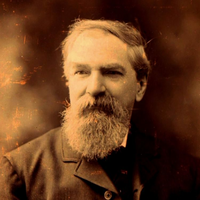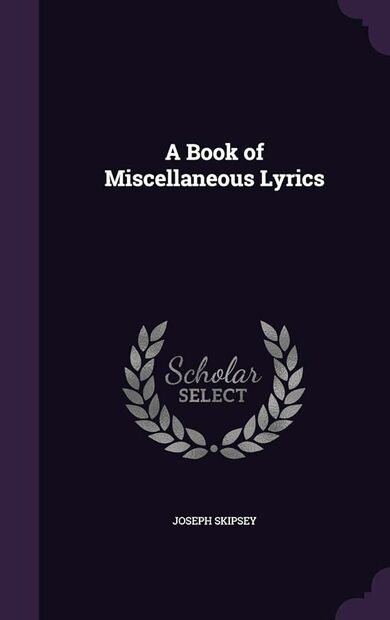A Psychic Chaunt
“A PHANTOM to me thou appearest,
But spite of this seeming I know
The magical image thou wearest,
Is real as the lilies in blow;
As real and as rare as the fairest of all our fair lilies in blow.
”Not alive to the senses external,
Of hearing, the touch, or the sight—
Not aught that would yield to the carnal
Desire a delusive delight;
But alive to the spirit eternal art thou, and its joy day and
night.
“Not alive to the outer but inner
Keen sense of the spirit, and when
I’m far from the world and its din, or
Low chat of most women and men,
I see in thy form what no artist could portray with pencil
or pen.
”Not a phantom so call’d, but a glory—
An outburst of sheen from the sky,
At which the black evils before thee
Upheave their huge pinions and fly—
At which I too mantled in glory am borne to the regions
on high.
“Uplifted on raptures bright pinions,
I tread the bright zones of the blest;
I enter the azure dominions
Of those who have long been at rest
From the turmoil, the strife, the opinions by which here the
good are opprest.
”Away o’er the gold-crested mountains
I hie light of foot as the roe;
I drink of the pellucid fountains
That flow in the valleys below,
And that instant both valleys and mountains with a deeper
significance glow.
“Yea, awake to the meaning and grandeur
By which I’m surrounded, I gaze;
And gazing thus wonder on wonder
The disenthrall’d spirit surveys;
And I see that on which I may ponder but never reveal in
those days.
”Ah me, what availeth the vision
Of music-sowl’d bard, seer, or sage;
When bigotry, self, superstition
Unite their fell forces to wage
A war upon truth and its mission, when learning would
fetter the age?
“What, what would it be to the nations
Did I give what I’d give for love’s sake?
Would they hearken the blest revelations
I’d deem it my duty to make?
They’d say I had drank of libations should doom me to
dungeon or stake.
”Yet freely the truth should be spoken
Could I but unfold it and say
How when from its manacles broken,
The soul to the spheres wings away,
We find where we go not a token of what our paid bishops
portray.
“This learn we in joy—ay, or sadness—
For tho’ be the creeds, new and old,
The offspring of falsehood and madness,
The scrolls of the past are unroll’d,
And we see as if shown in a mirror each fact there is there
to unfold.
”On all can be seen by the spirit,
Around us, above us, below;
Nay, even the homes we inherit,
Are graced or defaced—gloom or glow,
With merit our merit, demerit, our shame and joy, glory
and woe.
“Not in dead pictures merely but living
Bright symbols our deeds speak and move;
And we see with the gifts we have given
In the God-enshrined spirit of love,
The lest of our sins tho’ forgiven can never be cancelled
above.
”Hence we gather the unborn hereafter,
From out the live present is born;
That the laugher is stripped of his laughter,
The mask from the masker is torn:
The crafty is whipt by his craft and the scorner is met by
his scorn.
“This learn we, but learn too, whatever
The strength and the hue of our creed,
That a good deed’s a good deed and never
Can other be than a good deed;
That destiny’s self cannot sever nor keep from the worthy
his need.
”To the disenthrall’d spirit is granted
All this, and things deeper to know,
That in numbers of fire should be chaunted,
To creed ridden mortals below,
Could the feelings by which I am haunted be taught in
bright numbers to flow.
“But of this I despair; and I wander
With one once a mortal to find
The marvels we see and their grandeur
Can never be shown to mankind,
Till each for himself’s learned to ponder and feel the sad
fact he is blind.”


